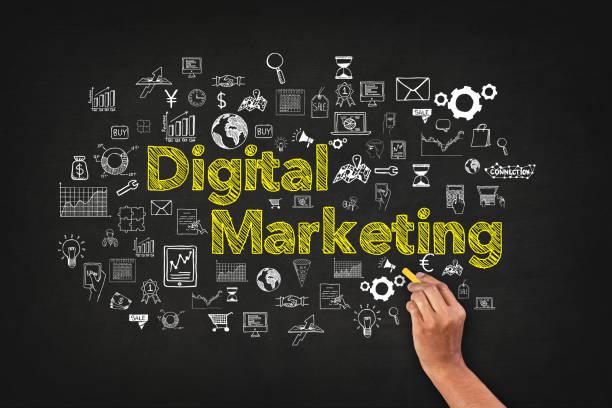
In today’s world, when the internet is at its peak, we need to use social media. People need to connect. As said in Maslow’s Need and Hierarchy Theory, physiological needs come first; they include all the necessities humans need in today’s world, and social media is a significant part of those needs.
The need for humans to connect and play a role in one another’s lives is a major driver of today’s generation’s development. A person’s growth is slowed if their basic needs are unmet. Maybe this need for connection is what drives social media addiction in modern humans.
Now, before going in deep, let us first understand what Social Media actually is.
What is Social Media?
Social Media refers to a variety of internet-based platforms and technologies that let users connect with, create, and share content and information across virtual communities and networks.
Most of you have heard of websites such as Facebook, Instagram, Twitter, YouTube, and many others. These are a few of the most commonly used social media platforms where people can voice their opinions and anything else they believe to be significant to the world.
Bolt and Six Degrees were the first social networking sites to go live in 1997. To provide a platform for email, voice mail, voice chat, message boards, and instant messaging, Dan Pelson created Bolt.
Social media has many features, but some of the key features of social media include:
- Sharing Options: Public or Private: While some material may be shared openly to reach a larger audience, many platforms also have privacy options that let users control who can view their posts and activities.
- Hashtags are used to categorize and find information that is connected to particular themes or trends. Trending topics draw attention to popular debates or happenings.
- Mobile Access: With the majority of social media sites offering mobile apps, users may easily access and interact with information while on the move.
- Due to its vast user base and availability of personalized marketing options, social media is used for advertising and promotion by many businesses and organizations.
What is Social Media Marketing?
The way businesses communicate with their target market, build brand awareness, and boost sales has been completely changed by SMM. It is a method and strategy for digital marketing that uses websites and social media to advertise goods, services, or brands.
SMM involves various activities to engage with an audience, build brand awareness, drive website traffic, and ultimately achieve marketing and business goals. Let us explore the power of social media marketing and its impact on businesses and consumers with DriftClick.
Precise Targeting
One of SMM’s biggest benefits is its ability to specifically target particular groups. Businesses can build highly targeted ad campaigns by analyzing user data and using complex algorithms. This ensures that marketing efforts are directed toward those who are most likely to be interested in their products, resulting in higher conversion rates and a higher return on investment.
Increasing brand recognition and trust
Social media gives companies a platform to humanize their brands. Companies may communicate directly with their audience by providing frequent updates. This encourages loyalty and trust, in addition to helping to increase brand recognition. Customers are more likely to support and interact with businesses they connect with personally.
Cost-Effective Marketing
SMM is more affordable than conventional forms of advertising. Businesses may make appropriate allocations of funds and real-time strategy changes based on performance data. Because of their flexibility, marketing resources may be utilized to their full potential, benefiting even start-ups and small firms.
Customer Feedback and Participation
Businesses may interact directly with their clients through social media. It allows for real-time feedback, problem-solving, and testimonial display. This openness not only improves the customer-business connection but also offers crucial information to improve your products.
Influencer Marketing
Influencer marketing has emerged as an important aspect of SMM in recent years. Influencers who have an avid following can help organizations enhance their image and market reach. Brands may access specialized markets and benefit from the credibility influencers have gained with their audience by collaborating with them.
Measurable ROI
Unlike traditional marketing, where assessing the return on investment can be challenging, SMM offers detailed analytics tools. Businesses can monitor things like engagement, conversion rates, and website traffic. The constant improvement and optimization of marketing strategies are made possible by this data-driven methodology.
Community Building
SMM offers comprehensive analytics skills, in contrast to traditional marketing, where determining the return on investment can be difficult. Website traffic, conversion rates, and other metrics can be monitored by businesses. This data-driven approach allows continuous marketing strategy optimization and refinement.
Enhanced Customer Service
Social networking sites frequently serve as tools for customer support. Businesses have to provide exceptional customer service on social media because customers expect quick replies to their questions and complaints.
How Does Social Media Impact Your Brands?
In a variety of ways, social media marketing can have a significant impact on your brand. We at DriftClick use it to connect with your target audience, raise brand awareness, increase website traffic, and generate leads and sales.
Be it the online feud between McDonald’s and Burger King or the creative marketing ideas by Lenskart, Zomato, or Ikea. All these brands serve as great examples of Social Media Marketing.
SMM can significantly impact your brand’s image, reputation, and success. To make a positive impact on your brand, use social media platforms wisely, engage authentically with your audience, and consistently deliver value.
Conclusion:
SMM is a powerful brand management and growth tool. We use it to interact with your audience, monitor brand sentiment, and change your plans in real time. Depending on how effectively you use social media to connect with the values and objectives of your business, the impact could be either positive or negative.
The market has been significantly impacted by social media marketing, which has altered the marketing environment. Businesses now have new opportunities to engage with customers, develop their brands, and promote growth thanks to SMM. Social media will only have a bigger influence on marketing as technology advances, making it a vital tool for companies hoping to succeed in the digital age.




More Stories
Boost Your Hospitality Brand Unlocking Our Hotel Marketing Agency’s Potential
How to Choose the Right Niche for Your Online Business
5 Ways to Boost Your Business with Online Marketing